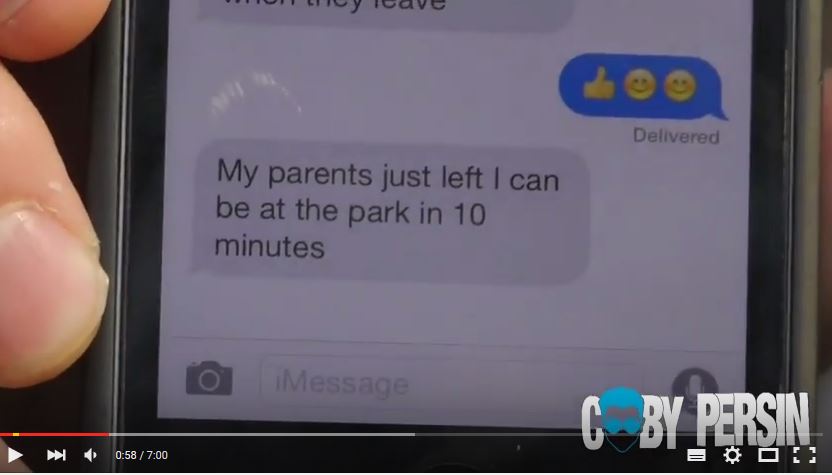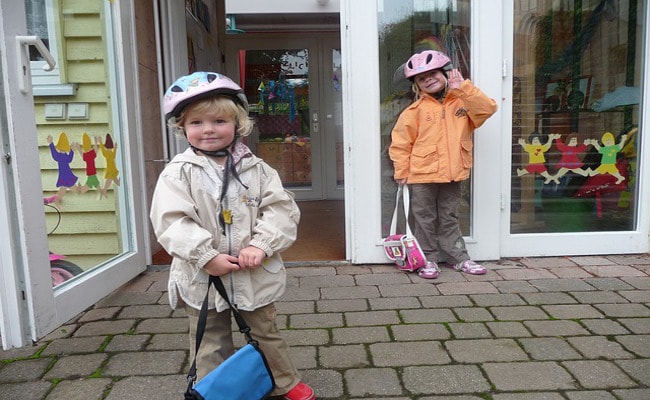The Internet is much like the Wild West: largely unregulated, fiercely independent, and a dangerous place for children.
Today’s parents likely learn basic Internet skills as adolescents or adults, making it tricky for them to negotiate their children’s day-to-day online needs.
An essential part of parenting is teaching your children how to navigate this complex world.
Educating your children about online safety is a key part of helping them grow into thoughtful, safe, web-savvy adults.

- Keep It Age Appropriate
Much like you wouldn’t explain the nitty-gritty details of the birds and the bees to a four-year-old, it’s important to keep your Internet safety talks age-appropriate.
Younger children don’t need to know that child molesters or dangerous people hang out in Internet forums. They simply can be told that using the Internet – much like swimming alone in a pool – is something that requires an adult’s supervision.
As children get older, it’s appropriate to explain the dangers of Internet use to help them understand the risk.
Discuss how people can pretend to be someone else online, steal important personal information, and use the anonymity of the Internet to bully others.
⇒ Related Read: Top 10 Internet Safety Tips For Parents And Teenagers
- Create a Social Media Policy and Stick To It
As a parent, it’s nearly impossible to keep tabs on the latest social media sites. For example, Facebook recently announced that it has experienced a drop in teen users as they turn to Instagram or SnapChat for their social media needs, as Forbes reports.
While it’s important to police particular sites, it’s more valuable to teach savvy social media skills. Talk to your kids about the information that is okay versus not okay to give out online.
For example, general locations-statements, like “I live in Illinois” are fine, but giving a particular address or school name is not.
The Denver Post recommends discussing privacy settings with kids to teach them how to protect their information.
Familiarize yourself with Facebook, Instagram or Tik Tok’s privacy policies and have your child walk you through his or her settings to make sure they’re safe and appropriate.
⇒ Related Read: Cyber Bullying: From Verbal To Virtual
- Discuss Email Communications

Many spam emails are innocuous, asking you to sign up for a service or take an online survey.
However, others install malware on your computer or nab personal information. Teach your child to recognize the difference between safe emails and those that are phishing attempts.
One way to explain phishing to your child is to frame as a scenario where someone who seems friendly is trying to do something harmful, as Lifelock.com advises. Inform your child that no official organization will ever ask for social security numbers, birthdays, passwords, or other sensitive information via email.
Tell your kid to let you know if he or she suspects a phishing attempt so you can notify the appropriate authorities.
- Explain Password Safety
Even tweens regularly subscribe to websites that require a username and password login. As a parent of a youngster, it’s fine to insist on knowing your child’s passwords to monitor online activity.
However, as your child becomes a teenager, some level of online privacy is appropriate. Microsoft recommends teaching your kids basic password safety skills at a young age.
Help your child create passwords with capital letters, numbers, and symbols to increase safety.
Encourage your child to memorize the password and only use it when on a personal device, rather than a public computer.
Ensuring password safety keeps your child safe from phishing attacks or cyberbullying hacks.
⇒ Related Read: Setting Rules in The Internet Era
If you find this article useful, do click Like and Share at the bottom of the post, thank you.
Want to be heard and seen by over 100,000 parents in Singapore? We can help! Leave your contact here and we’ll be in touch.


























































